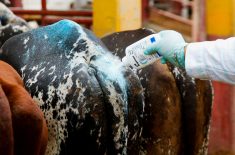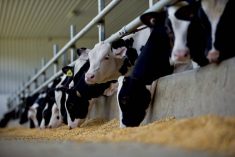Few details are yet available as the Canadian Food Inspection Agency launches its investigation into what’s now Canada’s 16th case of BSE.
The CFIA confirmed Friday that the carcass of the animal, an 80-month-old dairy cow from Alberta, did not enter the food or feed chains.
The six-year-old cow’s age and location make it “consistent with previous cases detected in Canada,” CFIA said, although it was born well after 1997, when Canada imposed its first ban on feeding of ruminant tissues to other ruminants.
The cow was detected through CFIA’s national surveillance program for bovine spongiform encephalopathy (BSE).
Read Also

Mexico agriculture secretary says still no date for restarting cattle exports to U.S.
Mexican Agriculture Minister Julio Berdegue said on Wednesday that Mexico and the United States have not yet set a date to resume Mexican cattle exports amid an outbreak of the flesh-eating screwworm parasite.
The animal’s birth farm has also already been identified, CFIA said, and the agency’s investigation is underway, tracing the animal’s birth herdmates and possible sources of infection.
The new case should not affect current levels of exports of Canadian cattle or beef, CFIA said, as Canada remains a “controlled risk” country for BSE, as recognized by the World Organization for Animal Health (OIE).
This marks Canada’s 16th case of BSE in the domestic herd, not counting an Alberta-born BSE-positive animal that was found in Washington state in 2003 and is typically credited to Canada.
The case confirmed Friday is also Alberta’s 11th, compared to four from British Columbia and one from Manitoba.
CFIA has previously said that as the level of BSE in this country continues to decline, detection of a small number of cases from time to time is fully expected and “in line with the experiences of other countries.”
BSE-infected beef in other countries has been linked to cases of variant Creutzfeldt-Jakob disease, a related brain-wasting ailment in humans.











